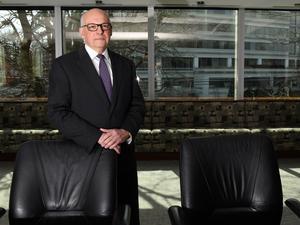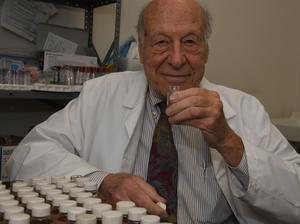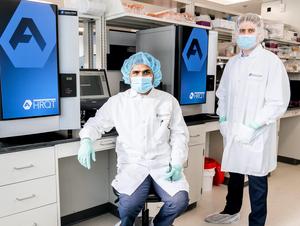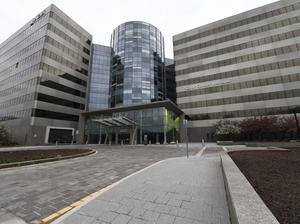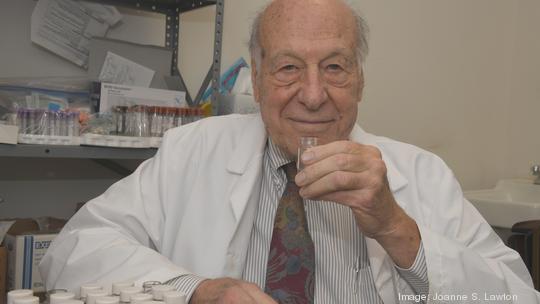
D.C.’s Cyrano Therapeutics Inc. is raising millions to restore the loss of smell and taste as the coronavirus robs many of its victims of those senses and brings attention to the need for a cure.
The 6-year-old company has raised a fresh $14 million to get its treatment to the market, and expects to receive the funding in tranches as it achieves certain goals, said founder Dr. Robert Henkin in an interview Friday.
The business needs the capital for a clinical trial to demonstrate the efficacy of its intranasal spray for olfactory impairment, or the chronic loss of smell and an associated loss of flavor function. That includes running a series of toxicity studies in animals to demonstrate the drug’s safety over a long period of time.
It also involves helping to set up three other clinical sites in areas outside of Greater Washington that are still being finalized. Those sites mark the beginning of a planned expansion of Cyrano’s program, Henkin said, to serve patients suffering from the condition — which may develop following allergy, head injury, anesthesia or virus.
That includes the coronavirus, which causes persistent smell loss in about 70% of cases, Henkin said. “We really have an obligation to evaluate and treat them, and we think we have a drug that will help,” he said.
“We think this is going to be a very important instrument to help these many, many people who are developing these problems,” he said, adding that a significant number of Covid-19 patients experience smell lost as the only major symptom.
The startup’s product uses an approved molecule called theophylline, which in this case is repurposed for administration through the nose rather than a systemic mode of delivery, because it works faster with fewer side effects, according to Henkin.
The company expects to kick off the clinical trial within the next few months, but could be looking at a couple of years before completing the studies necessary for an approval from the Food and Drug Administration. But “because there’s an unmet medical need for this,” Henkin said, “we may be able to get a shortcut from the FDA.”
Cyrano has gotten to this point with Henkin’s personal investment and $500,000 in funding raised from investors, including Inova Health System — which named the company to its accelerator in 2018 before the system shut that program down the following year.
The Inova Personalized Health Accelerator, as it was called, intended to serve as a hub for early-stage health care companies and bring returns and innovations to the system. That initiative was integral to Inova’s push to become a national leader in precision medicine under former chief Knox Singleton — but did not immediately advance patient care, the top priority for Dr. Stephen Jones, Inova’s president and CEO since spring 2018.
Cyrano joined the accelerator about a year before its closure, but the company dates back to 2014. Henkin launched the business out of his research at the National Institutes of Health, which also led him to pioneering the area in practice. He had opened the Taste and Smell Clinic in Washington more than four decades before pursuing his startup in earnest — as a mechanism to take his product to patients.
